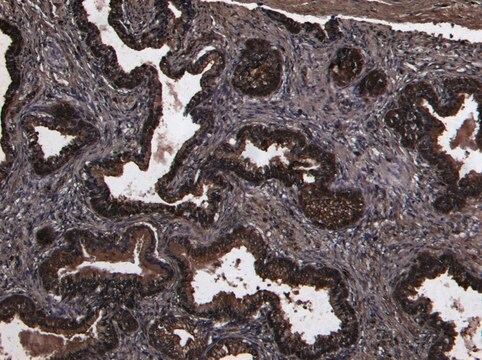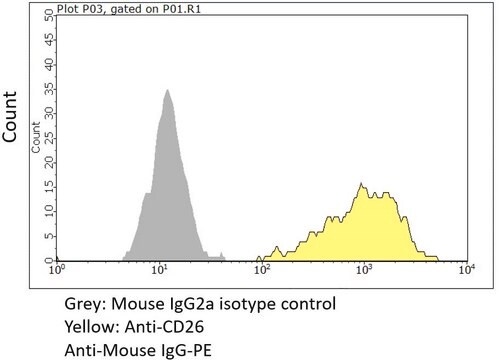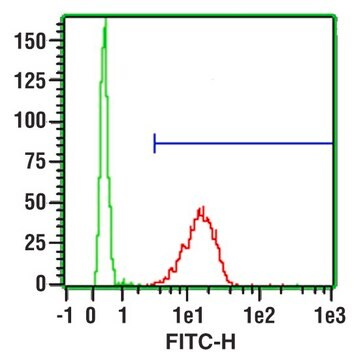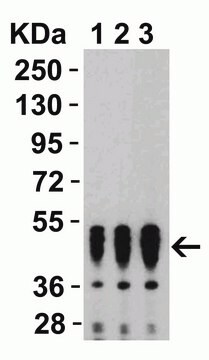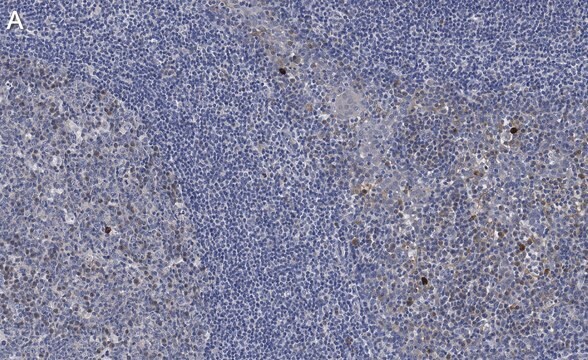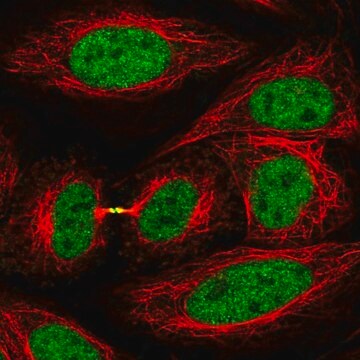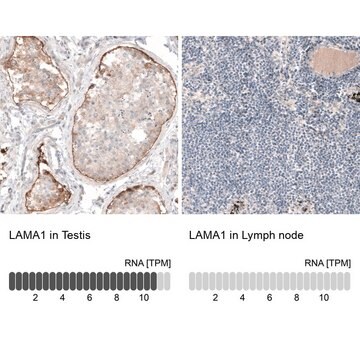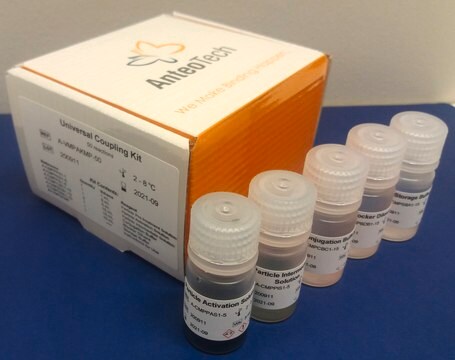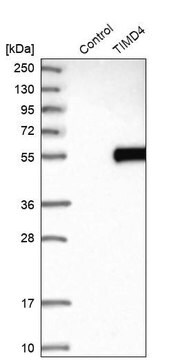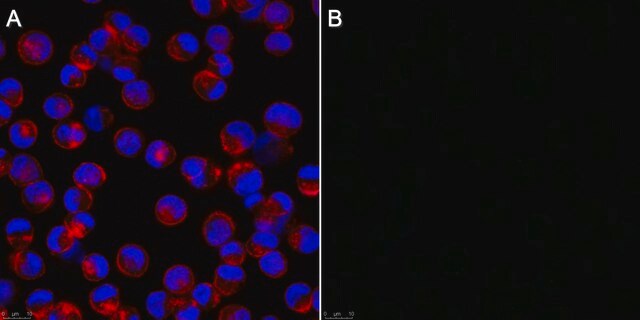SAB4200230
Anti-DPP4/CD26 antibody, Mouse monoclonal
clone A6H, purified from hybridoma cell culture
Sinonimo/i:
Monoclonal Anti-ADABP, Monoclonal Anti-ADCP2, Monoclonal Anti-DPPIV, Monoclonal Anti-TP103, Monoclonal Anti-dipeptidyl-peptidase 4
About This Item
Prodotti consigliati
Origine biologica
mouse
Coniugato
unconjugated
Forma dell’anticorpo
purified from hybridoma cell culture
Tipo di anticorpo
primary antibodies
Clone
A6H, monoclonal
Stato
buffered aqueous solution
Reattività contro le specie
human
Concentrazione
~4.0 mg/mL
tecniche
flow cytometry: suitable
immunocytochemistry: suitable
immunohistochemistry: suitable
indirect ELISA: suitable
indirect immunofluorescence: 20-40 μg/mL using methanol/acetone fixed HT-29 cells
Isotipo
IgG1
Condizioni di spedizione
dry ice
Temperatura di conservazione
−20°C
modifica post-traduzionali bersaglio
unmodified
Informazioni sul gene
human ... DPP4(1803)
Categorie correlate
Descrizione generale
Immunogeno
Applicazioni
- enzyme linked immuno sorbent assay (ELISA)
- immunocytochemistry
- immunohistochemistry
- flow cytometry
Azioni biochim/fisiol
Stato fisico
Esclusione di responsabilità
Non trovi il prodotto giusto?
Prova il nostro Motore di ricerca dei prodotti.
Codice della classe di stoccaggio
12 - Non Combustible Liquids
Classe di pericolosità dell'acqua (WGK)
WGK 1
Punto d’infiammabilità (°F)
Not applicable
Punto d’infiammabilità (°C)
Not applicable
Scegli una delle versioni più recenti:
Certificati d'analisi (COA)
Non trovi la versione di tuo interesse?
Se hai bisogno di una versione specifica, puoi cercare il certificato tramite il numero di lotto.
Possiedi già questo prodotto?
I documenti relativi ai prodotti acquistati recentemente sono disponibili nell’Archivio dei documenti.
Global Trade Item Number
| SKU | GTIN |
|---|---|
| SAB4200230-200UL | 4061838035509 |
| SAB4200230-25UL |
Il team dei nostri ricercatori vanta grande esperienza in tutte le aree della ricerca quali Life Science, scienza dei materiali, sintesi chimica, cromatografia, discipline analitiche, ecc..
Contatta l'Assistenza Tecnica.